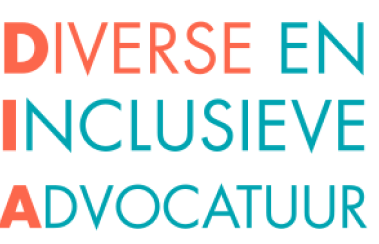The trust office as planning tool: the Dutch or Belgian route?
Thinking about handing over your business to the next generation in a few years’ time, but not yet ready to hand everything over? Then the trust office might be the right planning technique for you. In recent years, the Dutch trust office foundation (abbreviated to “STAK”) has been particularly popular, but perhaps the Belgian variant is due for a revival.

What is a trust office foundation?
The trust office foundation or STAK is a classic instrument for succession planning. It allows you to split up the two rights attached to shares: the voting rights at the shareholders’ meeting and the right to dividend payments then accrue to two different people. Or in other words: you separate the economic and legal rights of the shares.
As an entrepreneur, you can already partially transfer your enterprise to the next generation, while still retaining control. This method offers many advantages:
- You guarantee continuity in your enterprise.
- You avoid conflicts arising between your children that might jeopardise the survival of the enterprise.
- You are already bringing the next generation into the enterprise, even if they may not be ready yet to take full control. After all, you are the one who has and retains control (voting rights).
What do you need to do?
The first step is the issuance of depositary receipts for your shares. This means that you set up a foundation via a notarial deed that gets control over the shares. You can choose between a Belgian and a Dutch foundation. In principle, a Belgian foundation must have an altruistic purpose. Maintaining the family character and guaranteeing the continuity of the enterprise can meet this requirement.
You choose whether to issue depositary receipts for all your shares or just a part. The STAK exercises the voting rights attached to the shares for which you have issued depositary receipts. You yourself become a director of the STAK. In this capacity, you can continue to exercise the voting rights in your company.
The foundation then issues depositary receipts that you can pass on to your children. This can be done, for example, by notarising a gift before your Belgian notary. As holders of depositary receipts, they are only entitled to dividends, but have no voting rights. If you would also like to receive dividends for a while, donate only the bare ownership of the depositary receipts, but retain the usufruct for yourself. During the term of the usufruct, you continue to enjoy the fruits of your labour (the dividends paid).
You can even attach conditions to it, e.g. stipulating that your children cannot dispose of the depositary receipts (without your consent); that in the event of the children’s predecease, the certificates return to you; prohibition of the children including their depositary receipts in their matrimonial property, …
How does the STAK fit into your succession planning?
In any case, it is interesting to donate your family business or company to your children during your lifetime. After all, in Flanders this can be done at a zero rate. Your heirs do pay an (albeit limited) inheritance tax when inheriting a family business. Using a STAK is advantageous, because you yourself maintain a legal relationship with the enterprise.
STAK and UBO
One of the advantages of a (Dutch) STAK that was often put forward in the past is the anonymity of the depositary receipt holders: they do not have to be listed in the trade register with the Dutch Chamber of Commerce. Shareholders of a company, on the other hand, are included in this register.
However, since the introduction of the UBO regulations in the European Union, this anonymity is relative. After all, these regulations aim to ensure greater transparency by registering the individuals behind legal entities. A depositary receipt holder who owns more than 25% of the depositary receipts is considered an ultimate beneficial owner or UBO. That means that they must be included in the UBO register.
Dutch or Belgian STAK: Before the introduction of the Belgian Companies and Associations Code
Although you can also set up a Belgian trust office, most Belgian entrepreneurs have mainly opted for the Dutch variant in recent decades. Be careful with this choice. The foundation will then have its registered office in the Netherlands and will be fully governed by and construed in accordance with Dutch law.
The Dutch STAK certainly offers a number of advantages. You have a lot freedom in drawing up the terms and conditions. You decide who will be a director of the foundation. You can even choose to act as sole director yourself. At that time, determine who will succeed you as director(s) in the event of your death or dismissal.
Since 2002 you can also set up a STAK in Belgium via a Belgian private foundation. Despite this possibility, the Dutch route has remained more popular over the past twenty years. After all, the Belgian approach was less flexible and therefore less interesting. This was mainly due to the fact that…
- only shares of a private limited liability company (“besloten vennootschap met beperkte aansprakelijkheid”, abbreviated to “BVBA”), public limited liability company (“naamloze vennootschap”, abbreviated to “NV”) or a partnership limited by shares (“commanditaire vennootschap op aandelen”, abbreviated to “Comm. VA”) were eligible for depositary receipts – a restriction that the Netherlands does not impose
- a Belgian private foundation had to have at least three directors – while one of the great advantages of the Dutch STAK is that the entrepreneur can act as the sole director
- there is mandatory publication in Belgium, resulting in less anonymity.
After the entry into force of the Belgian Companies and Associations Code: Revival of the Belgian route?
In practice, however, it appears that the Belgian STAK is catching up. Why is that?
One of the major spearheads of the reform of Belgian company and association law was flexibility. As a result, working with a Belgian trust office (“administratiekantoor”) has suddenly become a lot more interesting. Or rather, the advantages of the Dutch route are less relevant. Indeed, since the entry into force of the Belgian Companies and Associations Code, it is also sufficient here to have only one director for a private foundation. It is therefore no longer necessary to manage the foundation collegially, which was a drag on the Belgian STAK.
The entry into force of the UBO rules also reduces the attractiveness of the Dutch STAK. Because depositary receipt holders (owning more than 25%) must be included in the UBO register, the advantage of anonymity is partly lost.
Because the Dutch STAK is not required to be philanthropic, you still have more flexibility, despite the change to Belgian law. The longer legal tradition of the Dutch variant also remains a strong advantage. This is a deficit that is not easy to compensate for. The future will show whether that happens.
If you are thinking about the future of your enterprise, talk about it with one of our experts. Together, we can examine what the best choice is for you.





![[:swvar:ufile:12:description:]](/swfiles/files/Vector.png?nc=1712174580)